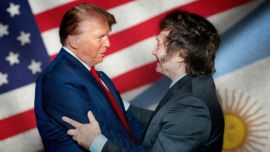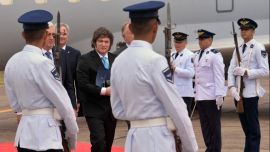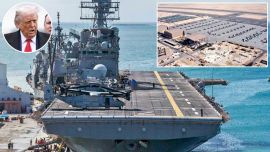Argentina’s foreign currency coffers received a boost of US$4.334 billion on Monday, thanks to the International Monetary Fund’s recent special drawing rights (SDRs) programme.
The arrival of a new round of SDRs – an international reserve asset that can be converted into the dollar, euro, yen, British pound and yuan – helped to raise the Central Bank’s international reserves to their highest amount in almost three years: US$46.306 billion.
The monetary authority said that reserves were up 10 percent as a result of the move and that it would have greater resources to calm the exchange market in the lead-up to the forthcoming PASO primaries and midterm elections.
The financing comes as part of a US$650-billion injection the IMF is making globally to foster resilience and stability in a global economy battered by the Covid-19 pandemic. The appeal of the SDRs to some nations is that they come condition-free, unlike many of the fund’s loan programmes.
The Economy Ministry confirmed the arrival of the funds and said in a statement that the resource "is not returned because it do not constitute a loan."
Last Friday, according to government data, reserves were at US $42.048 billion. When the Alberto Fernández administration took office, the Central Bank held around US$44 billion.
‘Social debt'
Speaking at a campaign rally on Monday, President Fernández warned that he would pay off Argentina’s “social debt” before clearing the countries’ debt with the IMF.
Fernández said he is "discussing with the Fund an agreement that was signed in one night in Olivos that cost the country US$44 billion."
"Many of those who took on that debt tell me 'We have to arrange [a deal] with the Fund.' I am not going to arrange any dinner with the Fund, I am going to settle this by arguing, by preserving the rights of Argentines, [and] knowing that before paying the Fund I have to pay a lot of social debt in Argentina," declared the president.
Argentina is in talks with the IMF to restructure its record US$57-billion credit-line granted in 2018 into a new financing programme. The country has received around US$44 billion to date and President Alberto Fernández has refused the remaining tranches.
The government and the IMF are expected to eventually agree an Extended Fund Facility (EFF) programme, though it is unknown if this will happen before Argentina’s midterm elections in November. An EFF scheme is designed to assist countries that are facing severe balance of payment issues in the medium term due to structural deficiencies. Unlike a stand-by agreement, like the deal agreed in 2018 by the Mauricio Macri administration, such programmes normally last some 10 years.
– TIMES/BLOOMBERG/NA





















Comments